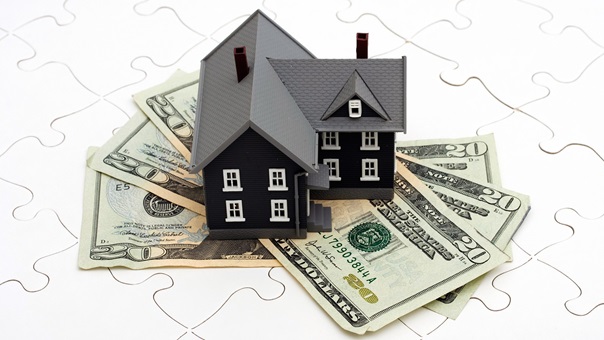When buying a home, you should conduct comprehensive research on the neighborhood you wish to live in and other factors that will help you determine the best course of action. It is vital to remember that getting and applying for a mortgage is challenging, meaning you should choose the best option that suits your needs and capabilities.
Everything depends on the type you choose, which will influence your terms and rates. That is why you should learn about different mortgage options you can find on the market. We can differentiate numerous mortgage options you can choose, which is why you should understand pros and cons of each one before making up your mind.
Choosing the right option for your situation can reduce the down payment, overall interest throughout the loan’s life, and other expenses you must handle.
Let us start from the beginning.
Mortgage Requirements

Suppose you wish to find the best mortgage option for a new household. In that case, you should understand the types and options you can choose. Still, most will require specific factors and opportunities, which are vital to remember.
- Down Payment – The amount you pay from the start in the form of the down payment will affect the mortgage rate and other factors along the way.
- Monthly Installment – You should know that lenders will check out your assets and determine the amount you can afford to pay each month to ensure you handle both principal and interest. When calculating the budget for monthly installments, you should consider taxes, interest, principal amount, utilities, insurance, and homeowner’s fees.
- Credit Score – Each lending institution will check out your credit score and rating to determine whether you can qualify for a loan or not. At the same time, they will create rates depending on your ability to repay everything, which is vital to remember.
Home Loan Types to Remember

We can differentiate mortgages as non-conforming and conforming loans. Everything depends on whether the lender will collect the payments and keep the loan or sell it to real estates investment companies such as Freddie Mac and Fannie Mae.
1. Conforming Loans
You should know that conforming loans represent conventional mortgages that real estate investment companies can purchase. If a particular institution decides to buy your mortgage from a lender, the loan must meet the essential qualifications of FHFA or the Federal Housing Finance Agency. You should click here to visit FHFA’s official site.
We are talking about the following qualifications:
- It Should Be Below Max Dollar Limit – It is vital to remember that a maximum dollar limit is approximately $650 thousand, while in Hawaii and Alaska, as well as other high-cost areas, the limit can reach one million dollars. Higher limitations can apply when you purchase a multifamily unit. The lender cannot sell your loan if the amount is higher than the maximum dollar limit. The only exception is when you qualify for a super conforming loan, which is an entirely different approach.
- It Should Not Be Federally Backed – Getting a federally-backed loan means a specific government entity stands as the protection. Some government bodies, including the Federal Housing Administration, the Department of Veteran Affairs, and others, will offer you insurance on your mortgage. Therefore, if you have a government-backed loan, investment companies cannot buy them.
- It Should Meet Lender-Specific Criteria – A mortgage must meet the lender’s criteria to ensure you get a conforming option. For instance, you must have a high credit score to qualify. At the same time, you should consider income limits and property guidelines when applying. Therefore, you can determine whether you are eligible for it based on your financial situation.
As you can see, conforming loans come with defined guidelines, while some variations can happen depending on circumstances. Since the lender will sell the loan, suitable options are less risky. As a result, you will get a lower interest than other options.
2. Non-Conforming Loans
Suppose your loan does not meet conforming standards. Since you must follow specific guidelines to become a conforming option, it means you can have lower credit score and get more money without placing a significant down payment. It means we can call it a non-conforming option.
You can also get a non-conforming option if you have a negative credit report, including bankruptcy. Since most depend on government backup, you must qualify depending on specific requirements.
Different Mortgage Options You Can Choose

Depending on the type of mortgage you wish to get, you can determine numerous pros and cons of various home loans. It does not matter whether you are a first-time buyer or want to refinance because you should choose the best mortgage option available.
Another consideration should be the amount you wish to get, which will help you narrow the options and choose the one that will provide you peace of mind. Of course, you can find a mortgage calculator to determine the amount you need to borrow for a particular house you wish to get.
1. Conventional Mortgages
The most common option you can find is a conventional mortgage. They come with strict regulations regarding debt-to-income or DTI ratio and credit score. Although you can purchase a household with a three percent down payment, you will need at least 620 points to get it in the first place.
At the same time, if you do not put at least twenty percent of the down payment, you must pay PMI or private mortgage insurance. Mortgage insurance rates are lower for conventional options such as FHA.
They are perfect for borrowers who wish to get low-interest rates by using a large down payment from the beginning. As a result, you can get at least three percent down, or you should consider VA or USDA option.
Therefore, if you are a borrower with a stable job and income and can pay a high down payment to avoid PMI, you should get this mortgage option.
2. Fixed-Rate Mortgages
When it comes to fixed-rate options, it means you will get the same interest rate throughout the loan’s life. It means the amount you will pay each month may not fluctuate unless you must handle the insurance rates, but for most mortgages, you will get predictable monthly installments.
This option is the perfect solution if you live in a home that will stay with you forever. Therefore, a fixed interest rate will allow you to predict the amount you must handle each month, which will enable you to create a proper strategy and budget overall.
The main idea is that when you lock in, you will remain with the same rate for the rest of the loan’s life. However, you should avoid it if the interest rates in your area are significant. Of course, you can refinance to a variable or adjustable rate, but you must handle closing expenses and qualify for it in the first place.
That is why you should talk with a financial advisor when choosing the best course of action, which will provide you peace of mind.
3. Adjustable-Rate Mortgages
A completely different approach from fixed-rate options is variable or adjustable-rate mortgages. We are talking about thirty-year loans with a fluctuating interest rate that will change depending on external factors.
The main idea is to agree to an introductory period in which you will get a fixed interest. Generally, the period can last up to ten years. However, after the period ends, you will get variable rates that depend on outside factors.
Market interest rates will dictate the percentage you must handle each month, meaning you will not get a stable repayment plan as with a fixed option. However, you will get a predetermined index, which will allow you to determine the changing rates.
Rate caps will protect you from severely increased interest rates that may double your installments. The percentage can go up when the market index increases, while rates can decrease when the index goes down. You should expect rate caps that will dictate the maximum changing capabilities in a specific period or throughout the loan’s life.
For example, rates can rise yearly, meaning when the percentage reaches a cap, it will remain there without further increase. Of course, caps can go in different directions, and limit the rate for home loans (finn Forbrukslån) can go down too.
They are the perfect option for people that wish to purchase a starter household before moving to the next one they will live forever. As a result, you can take advantage of adjustable rates and save money in the long run, especially if you wish to resell it during the introductory period.
You can add extra cash to your principal, which will help you save thousands of dollars in the future. It is also beneficial, especially if you wish to pay additional amounts from the start. Still, the rates can dramatically increase, meaning your monthly installments will also increase. Therefore, you should prepare yourself for both outcomes.
Similarly as mentioned above, adjustable-rate mortgages are perfect for people who wish to resell the home and buy a new one in the future.


Comments are closed.